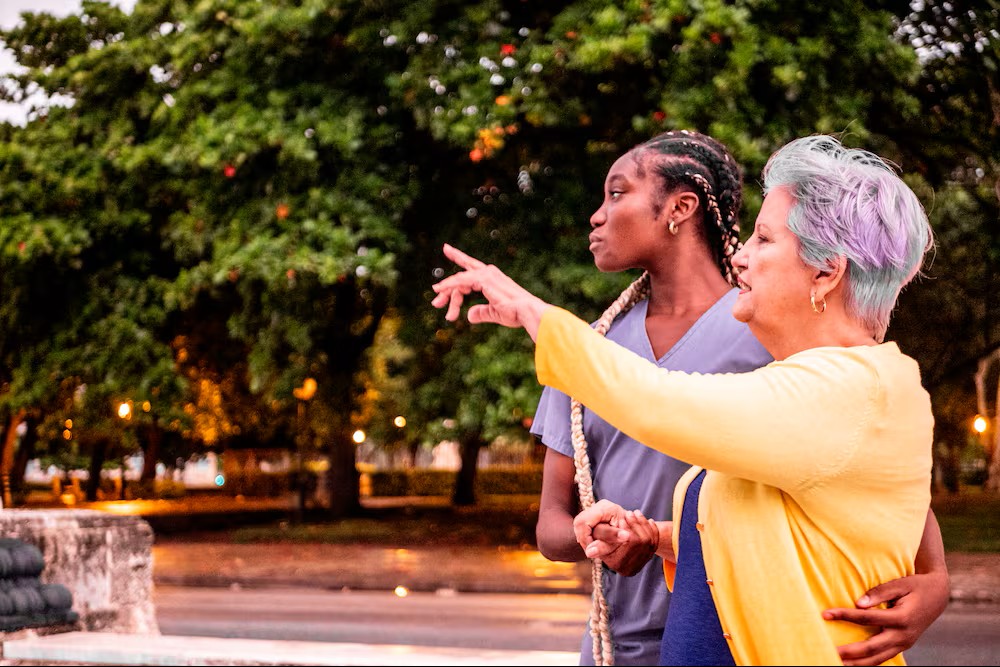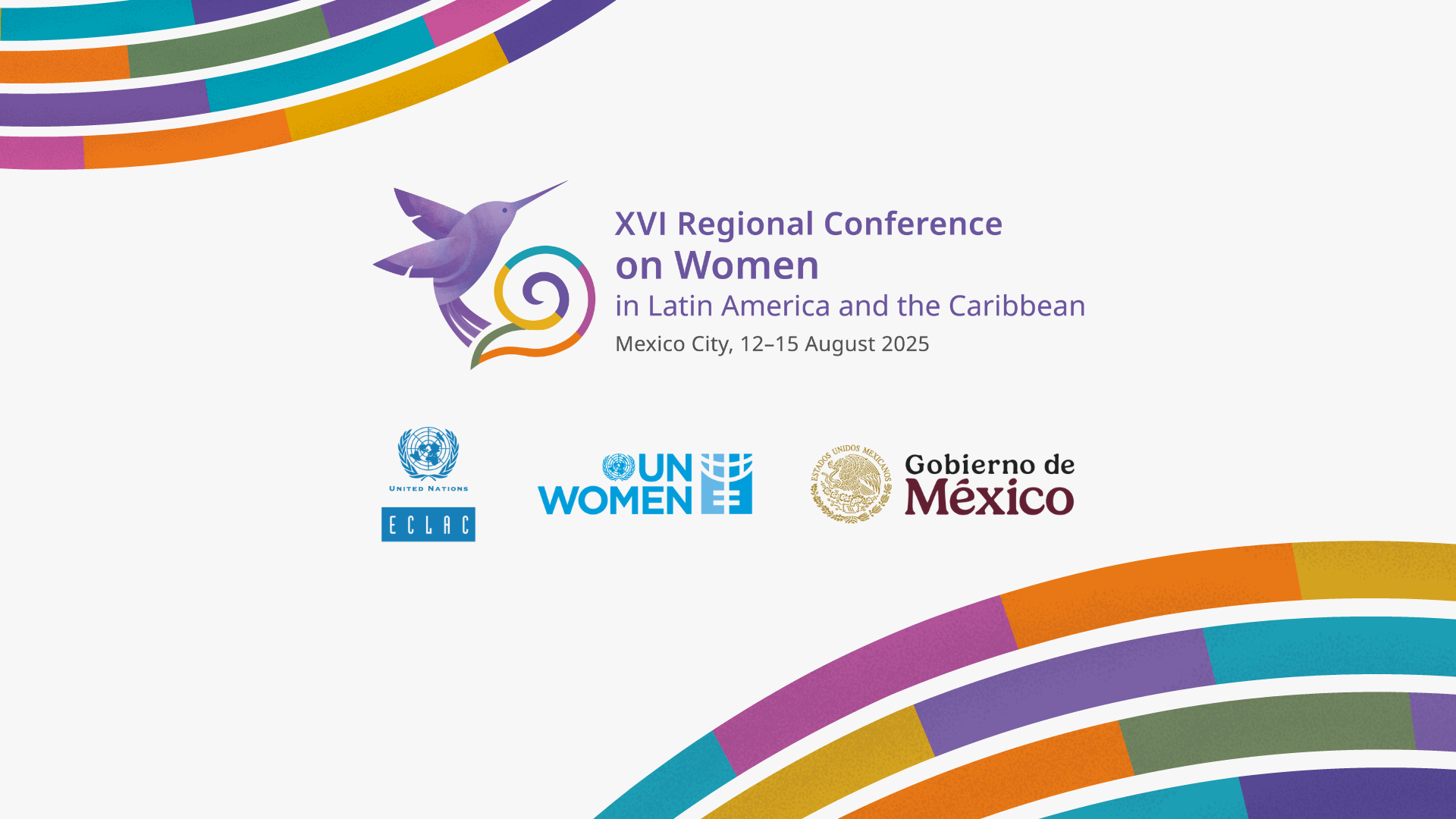Care Is the Future: Latin America and the Caribbean Launch the Decade of the Care Society
Work area(s)
By Sima Bahous, Executive Director of UN Women; José Manuel Salazar-Xirinachs, Executive Secretary of ECLAC; and Citlalli Hernández Mora, Secretary for Women of Mexico. Published in El País (Spain), on 30/09/2025.

(Photo: An adult woman is assisted by a nurse. Credit: FG Trade Latin Getty Images).
Imagine every neighborhood in the Andean highlands or the Caribbean islands offering affordable childcare, day centers for older adults, safe transportation, and equal leisure time for every family member. That horizon—where care is a shared right rather than an unrecognized burden—drew closer in August when the Tlatelolco Commitment was adopted at the 16th Regional Conference on Women in Latin America and the Caribbean, held in Mexico City.
The agreement affirms that giving care, receiving care, and self-care are universal rights and a responsibility shared by households, communities, businesses, and States. It recognizes the disproportionate load of care work borne by women and frees time and opportunity for millions of them to study, work, and participate fully in public life.
The Tlatelolco Commitment launches a Decade of Action for a Care Society, charting a path to redirect financing, refocus budgets, and transform laws and cultural practices across the region.
A recent landmark opinion by the Inter-American Court of Human Rights concluded that States “must respect, protect, and guarantee” the right to care “with the maximum available resources” and without backsliding. This means every budget, tax reform, and social policy must align with three non-negotiable principles: progressivity, non-regression, and substantive equality. Like health or education, care now enters the catalogue of rights that can be claimed before national courts and, if necessary, before the Inter-American system.
To realize the right to give care, receive care, and self-care in every territory, the first step is to map supply and demand and create services, while designing gender-responsive transport networks. This is about building gender- and care-sensitive infrastructure rooted in local realities, where daily life unfolds.
The Commitment calls for mobilizing local, national, and international resources and advancing progressive fiscal policies that secure stable budgets for robust care systems. It invites us to look beyond GDP, valuing paid and unpaid care work in national accounts and measuring its return in well-being and employment.
The progress embodied in the Tlatelolco Commitment and the Court’s advisory opinion would not have been possible without those who have put care at the center for decades: feminist and women’s movements—from Indigenous, Afro-descendant, and rural organizations to networks of women with disabilities, migrants, youth, and LGBTI+ people—whose constant advocacy shapes the regional agenda; care workers who have organized to voice their demands; community care leaders; and feminist economists and scholars who have exposed the unequal distribution of care and its contribution to the productive system. Alongside them, governments at every level—federal, state, municipal, and parliamentary—have pledged to legislate, budget, and implement policies that make care an enforceable right.
Today we call for concerted action. We urge legislators to pass national care systems backed by guaranteed resources; finance ministries to adopt gender-responsive budgeting and offer incentives for care-responsible companies; the private sector to implement gender-equality policies that ensure full professional development for women and men; local governments and communities to design care infrastructure suited to the diversity of each territory, city, town, and island; and organized citizens to monitor and demand compliance with this Decade of Action—because caring is also a full act of democracy.
The Tlatelolco Commitment is not an endpoint but mile zero of a shared journey guiding us to 2035. If honored, Latin America and the Caribbean will be poised to narrow gender gaps, reduce poverty, build resilient economies, and strengthen democracies. Investing in care is investing in the life that sustains our peoples.
We invite you to join us—from your homes, communities, governments, and businesses—so that this Decade of Action makes care a horizon we advance toward and cements that commitment as a pillar of our lives and actions.
Source URL
Related content

Mexico Will Host on August 12-15 the XVI Regional Conference on Women in Latin America and the Caribbean
This intergovernmental gathering – which takes place every three years – will be key to accelerating the pace to further the achievement of women’s autonomy, the care society and…
Contact
Public Information Unit
- prensa@cepal.org
- (56 2) 2210 2040
